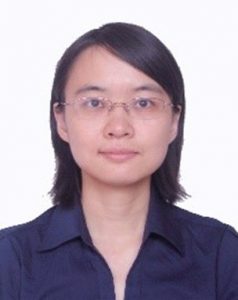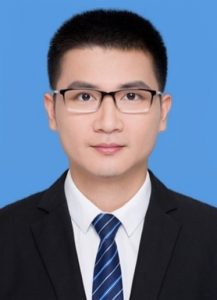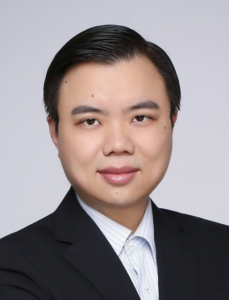Keynote speakers
Title: The Golden Age of AI – Devices, Data, and Deep Learning
S.Y. Kung, Life Fellow of IEEE, is a Professor of Electrical and Computer Engineering at the Princeton University. His research areas include VLSI array processors, AI algorithms, machine learning, deep learning networks, neural architectural search, and compressive privacy. He was a founding member of several Technical Committees of the IEEE Signal Processing Society. He was elected to Fellow of IEEE in 1988 and served as a Member of the Board of Governors of the IEEE Signal Processing Society (1989-1991). He was a recipient of IEEE Signal Processing Society’s Technical Achievement Award for the contributions on “parallel processing and neural network algorithms for signal processing” (1992); a Distinguished Lecturer of IEEE Signal Processing Society (1994); a recipient of IEEE Signal Processing Society’s Best Paper Award (1996); IEEE Third Millennium Medal (2000), and CIE-GNYC’s Distinguished Achievement Award (2023). Since 1990, he has been the Editor-In-Chief of the Journal of VLSI Signal Processing Systems. He has authored and co-authored more than 500 technical publications and numerous textbooks including “VLSI Array Processors”, Prentice-Hall (1988); “Digital Neural Networks”, P-H (1994); “Principal Component Neural Networks”, Wiley (1996); “Biometric Authentication: A Machine Learning Approach”, P-H (2004); and “Kernel Methods and Machine Learning”, Cambridge University Press (2014).
Abstract
The rapid advancement of AI is propelled by three “D”-pillars: (1) Devices, enabled by resilient VLSI technology; (2) Data, driven by large-scale LLMs and big data; and (3) Deep Learning, powered by transformative neural architectures like transformers (NN3.0). This talk begins by tracing the evolution of neural networks—from MLP (NN1.0) and CNN (NN2.0) to today’s transformer-based models—highlighting how AI2.0 distills vast data into knowledge (D2K). Our second theme is focused on Regressive Component Analysis (RCA), a novel framework unifying subspace learning and supervision. With over 25 billion connected devices, our identity, habits, health, and other personal data may be inadvertently leaked or illegally hacked without. As such, it is of paramount importance to address the challenging issue of on-line utility-privacy tradeoffs. To this end, we demonstrate how RCA theoretically enables a novel privacy paradigm named “compressive privacy” as a potential safeguard for online data in this treacherous era of AI. Finally, we highlight the emergence of AI-Mathematics (AIM)—a discipline that will prove fundamental to advancing intelligent systems and our unequivocal theme is – in short – “Math is the Cornerstone of AI”.

Future-generation wireless networks & Smart and intelligent IoT & Edge intelligence & blockchain & Digital twin University of Oslo, Norway
Title: Ubiquitous Computing Power Networks
Yan Zhang is currently a Full Professor with the Department of Informatics. University of Oslo, Norway. His research interests include next-generation wireless networks leading to 6G, green and secure cyber-physical systems. Dr. Zhang is an Editor for several IEEE transactions/magazine. Since 2018, Prof, Zhang has been listed as a Highly Cited Researcher by Clarivate Analytics (i.e., Web of Science). He is Fellow of IEEE, Fellow of IET, elected Member of Academia Europaea (MAE), elected member of the Royal Norwegian Society of Sciences and Letters (DKNVS), and elected member of Norwegian Academy of Technological Sciences (NTVA).
Abstract
Firstly, we introduce the concept and model of ubiquitous computing power networks. Then, new and unique scientific research problems in ubiquitous computing power networks are defined and solved, including the optimal allocation of computing resources, computing power collaboration and clustering mechanism, and distributed computing power sharing. Finally, we point out the future scenarios and open questions of ubiquitous computing power networks.
Title: AI-Aided Maritime Wireless Communications Against Jamming and Interference
Liang Xiao is IEEE Fellow and a Professor in the Department of Informatics and Communication Engineering, Xiamen University. She has served in several editorial roles, including an associate editor of IEEE Transactions on Information Forensics & Security, IEEE Transactions on Communication, IEEE Transactions on Wireless Communication and IEEE Transactions on Dependable and Secure Computing, and Guest Editor of IEEE Journal on Selected Topics in Signal Processing. Her research interests include wireless security, privacy protection, and wireless communications. She published three books and three book chapters. She won 2024 IEEE ComSoc Asia-Pacific Outstanding Paper Award, as well as the best paper award for 2017 IEEE ICC, 2018 IEEE ICCS and 2016 IEEE INFOCOM Bigsecurity WS. She was 2022-2023 IEEE ComSoc Distinguished Lecturer.
Abstract
Maritime communication performance is significantly affected by sea surface reflections and wave fluctuations, which potentially compromises the quality of service (QoS) for maritime applications against jamming and interference. In this report, we discuss the maritime anti-jamming communication paradigm, employing a game-theoretic framework to analyze how maximum jamming power and channel gains impact communication performance. We introduce a safe reinforcement learning (RL) algorithm to avoid high-risk policies and accelerate learning under deteriorated maritime environments. Building upon this, we propose the RL-based maritime anti-jamming communication scheme that optimizes transmit channel and power, relay node, and trajectory based on channel conditions, QoS requirement, jamming characteristics and marine environmental features.

Network security & Wireless communications & Machine learning & AI security Xiamen University, China
Title: AI-Empowered Video Analytics Systems
Haipeng Dai is a professor and doctoral supervisor of the School of Computer Science in Nanjing University. He is an ACM/IEEE Senior Member, and CCF Distinguished Member. He was selected by the National Young Talent Program. He received ACM China Rising Star Award, and IEEE TCSC Middle Career Researcher Award. His research interests are mainly in the areas of Internet of Things, data mining, and mobile computing. He has published more than 270 papers (including 120 CCF A papers), including papers in prestigious conferences such as NSDI, SIGMOD, VLDB, ICDE, KDD, WWW, EuroSys, ATC, UbiComp, INFOCOM, JSAC, TIFS, TON, TMC, TPDS, and TKDE. He has won over 10 first-class international conference paper awards, including 4 CCF A/B conference paper awards. He serves as the project leader of the National Key R&D Program, chairing and participating in more than ten projects including General Projects of NSFC and the National Key R&D Program of China. He serves as Secretary General of ACM SIGCOMM China, Standing Committee Member of CCF Technical Committee of Internet of Things and CCF Technical Committee of Network and Data Communication. He served as chairs of 30+ conferences including ISPA and HPCC. He serves as an Area Editor of Elsevier Computer Networks and an Associate Editor of IEEE Transactions on Industrial Informatics.
Abstract
Video analytics is widespread and has various applications that serve our society. Recent advances in content enhancement in video analytics offer significant benefits for bandwidth saving and accuracy improvement. However, current content-enhanced methods still face challenges like high computational costs, low throughput, and poor performance in complex visual tasks. To address these issues, we optimize the content-enhancement video analytics system based on temporal and spatial similarities of video streams using techniques like Deep Reinforcement Learning and Deep Neural Networks, reducing latency by 80% and increasing accuracy by 21% in single-stream scenarios. In multi-stream competitive environments, bandwidth and precision allocation are jointly optimized, increasing throughput by 9 times and improving bandwidth utilization by 52%. Additionally, low-rank adaptive technology is introduced to enhance the performance of multimodal large models, achieving a 62% increase in accuracy and an 89% reduction in inference latency in zero-shot visual tasks.
Title: Rotatable Antenna (RA) Empowered Wireless Networks: The Road to 6G
Beixiong Zheng is now serving as a Guest Editor for the IEEE JOURNAL ON SELECTED AREAS IN COMMUNI- CATIONS (JSAC), and an Editor for the IEEE TRANS- ACTIONS ON WIRELESS COMMUNICATIONS (TWC) and the IEEE COMMUNICATIONS LETTERS (CL). He was the recipient of the IEEE COMMUNICATIONS SOCIETY Heinrich Hertz Award for Best Communications Letter in 2022, the IEEE COMMUNICATIONS SOCIETY Best Tutorial Paper Award in 2023, the Electronic Information Science and Technology Award (First Prize of Natural Science Award) of Guangdong Province in 2022, the Science and Technology Award (First Prize of Natural Science Award) of Guangdong Communications Society in 2024, the Best Ph.D. Thesis Award from the China Education Society of Electronics in 2018, the Best Paper Award from the IEEE International Conference on Computing, Networking and Communications (ICNC) in 2016, the Best Paper Award from the IEEE International Conference on Wireless Communications and Signal Processing (WCSP) in 2024, and the Best Paper Award from the International Conference on Ubiquitous Communication (Ucom) in 2023. He was also awarded the Humboldt Research Fellowship for experienced researchers in 2024. In addition, he was listed as the World’s Top 2% Scientist by Stanford University and Mendeley Data from 2021 to 2024. He was also recognized as an Exemplary Reviewer of the IEEE TRANSACTIONS ON COMMUNICATIONS and IEEE COMMUNICATIONS LETTERS, and an Outstanding Reviewer of the PHYSICAL COMMUNICATION.
Abstract
Rotatable Antenna (RA) is a novel antenna architecture that offers significant potential to enhance wireless sensing and communication performance by dynamically adjusting the boresight of directional antennas. Compared with traditional fixed-antenna architectures, RA technology can exploit additional spatial degrees of freedom through flexibly reconfiguring its boresight direction via mechanical or electronic means, thereby enhancing channel conditions, expanding coverage range, and improving interference management. In this talk, we introduce the hardware structures and application scenarios of RA, with a focus on analyzing its advantages in interference mitigation, spatial multiplexing, and flexible beamforming to enhance sensing and communication performance. Furthermore, we discuss key design challenges in RA systems, such as rotational scanning scheduling, channel estimation, boresight optimization, and RA configuration. With its unique capabilities to adaptively rotate the antenna or array to meet diverse communication or sensing requirements and dynamic channel conditions, RA is poised to become a key enabler of future intelligent, reliable, and agile wireless networks in the 6G era.

5G/6G wireless communications & Intelligent reflecting surface (IRS) & Rotatable antenna (RA) & Signal processing South China University of Technology, China

Network and information security & Artificial intelligence security & Data security & Multimedia content security Huaqiao University, China
Title: Hiding in Plain Speech: Deep Steganography & Steganalysis for Speech Streams
Hui Tian is a distinguished professor of the Chengzhi Scholar Position at Huaqiao University, where he currently serves as the Dean of the College of Computer Science and Technology, Dean of the College of Network and Information Security Industry, and Director of the Xiamen Key Laboratory of Data Security and Blockchain Technology. He has been recognized as an outstanding young talent under the “Young Eagle Plan” in Fujian Province, a provincial-level candidate for the Fujian Province Hundred Thousand Talents Project, an outstanding talent of the New Century in Fujian Province universities, and a distinguished research talent in Fujian Province universities. Dr. Tian is also an IEEE Senior Member, a Distinguished Member of the China Computer Federation (CCF), an Executive Committee member of the CCF Blockchain Technology Committee, Vice President of the Fujian Provincial Computer Society, and President of the Fujian Provincial Network Space Security Society. Dr. Tian’s research focuses on network and information security, artificial intelligence security, data security, blockchain, and multimedia content security. In recent years, he has led more than 30 projects, including four National Natural Science Fund projects and two National Key R&D Program topics. He has published over 120 academic papers in renowned international journals and conferences, such as IEEE TIFS, IEEE TDSC, ACM MM. Additionally, he has filed over 50 invention patents (over 40 granted) and obtained eight software copyrights. His research achievements have been awarded several honors, including the Second Prize of the CIE (China Institute of Electronics) Science and Technology Award, the Second Prize of Hainan Province Natural Science Award, the Third Prize of Fujian Province Science and Technology Progress Award, and the Third Prize of Fujian Province Natural Science Award.
Abstract
In the information age, Voice-over-IP(VoIP)streams, as a key communication medium for social media and multimedia interaction, offer a highly covert dissemination channel for steganography due to their openness. This report delves into the steganographic techniques in VoIP streams and their detection methods, revealing the cutting-edge implementations of steganography in modern speech coding. We explore how information can be skillfully embedded into speech signals and, based on deep learning technology, develop efficient detection models to achieve accurate identification of steganographic information. Through empirical research, this report reveals the concealment and effectiveness of different steganographic algorithms, analyzes their potential impact on speech quality, and systematically evaluates the performance and limitations of existing detection technologies. Finally, the report looks ahead to future development trends in this field, discusses potential research directions under the integration of artificial intelligence and new coding technologies, and provides new ideas and directions for the security of speech streams and steganography detection.
Title: A Comprehensive Benchmark Suite for Evaluating Large Language Models’ Capability in IT Operations Domain
Changhua Pei, Associate Professor at the Computer Network Information Center of the Chinese Academy of Sciences and a recipient of the “Hundred Talents Program” for young talent introduced by the Chinese Academy of Sciences, conducts interdisciplinary research on large-scale operation and maintenance models and AI for Networking. His work has been featured in MIT Technology Review and Hacker News, with papers published in top international conferences such as SIGCOMM, ICML, FSE, WWW, SIGKDD, SIGIR, and INFOCOM. He received the 2023 ISSRE Best Paper Award (as the corresponding author) and was nominated for the 2019 RecSys Best Paper Award. Dr. Pei serves as the Program Committee Chair for the 7th CCF International AIOps Challenge 2024 organized by the China Computer Federation. One of his papers has become one of the three most cited papers in the history of CIKM.
Abstract
In recent decades, the field of software engineering has driven the rapid evolution of Information Technology (IT) systems, including advances in cloud computing, 5G networks, and financial information platforms. Ensuring the stability, reliability, and robustness of these complex IT systems has emerged as a critical challenge. Large language models (LLMs) that have exhibited remarkable capabilities in NLP-related tasks are showing great potential in AIOps. Unlike knowledge in general corpora, knowledge of Ops varies with the different IT systems, encompassing various private sub-domain knowledge, sensitive to prompt engineering due to various subdomains, and containing numerous terminologies. Existing NLP-related benchmarks can not guide the selection of suitable LLMs for Ops (OpsLLM), and current metrics (eg, BLEU, ROUGE) can not adequately reflect the question-answering (QA) effectiveness in the Ops domain. We propose a comprehensive benchmark suite, OpsEval, including an Ops-oriented evaluation dataset, an Ops evaluation benchmark, and a specially designed Ops QA evaluation method. Our dataset contains 7,334 multiple-choice questions and 1,736 QA questions. We have carefully selected and released 20% of the dataset written by domain experts in various sub-domains to assist current researchers in preliminary evaluations of OpsLLMs.
Title: Bitcoin P2P Network Security: Passive and Active Countermeasures
Wenjun Fan, is an Assistant Professor and PhD Supervisor in the Department of Communications and Networking at Xi’an Jiaotong-Liverpool University’s School of Advanced Technology. A member of IEEE, ACM, CCF, and IET, he also holds an Honorary Membership at the Institute of Cyber Security for Society (iCSS), University of Kent, Canterbury, UK. His research interests include networking, cybersecurity, cloud computing, blockchain, and artificial intelligence. He has participated in a number of research projects funded by EU H2020 and the US NSF. He has contributed to over 60 academic papers in prestigious venues like JSAC, TDSC, ICDCS, CNS, ICC, SafeComp, and ARES.
Abstract
The Bitcoin P2P network relies on a rule-based ban-score mechanism to mitigate malicious peer behavior. However, this passive protection framework is inherently vulnerable to diverse attacks due to the network’s permission less nature. This presentation will first reveal critical security issues arising from the limitations of this ban-score mechanism. Subsequently, the speaker will introduce their latest research: an innovative active countermeasure. This involves a honeypot-like P2P network telescope designed to proactively identify and monitor suspicious nodes. By employing such an active defense strategy, the Bitcoin community can significantly enhance the security posture of the entire P2P network, protecting it more effectively against evolving threats.






